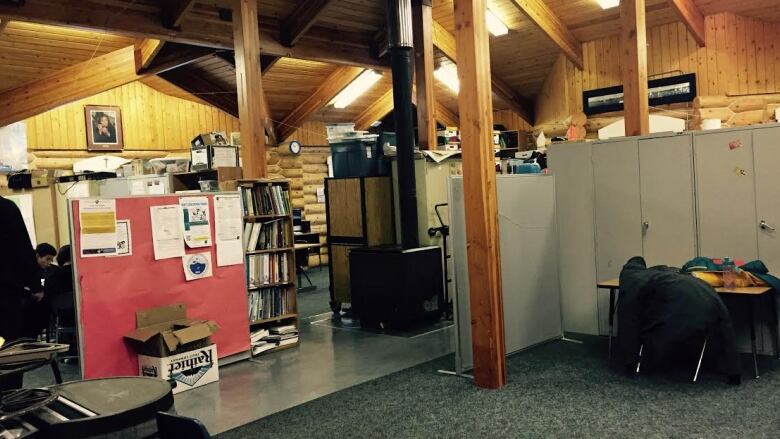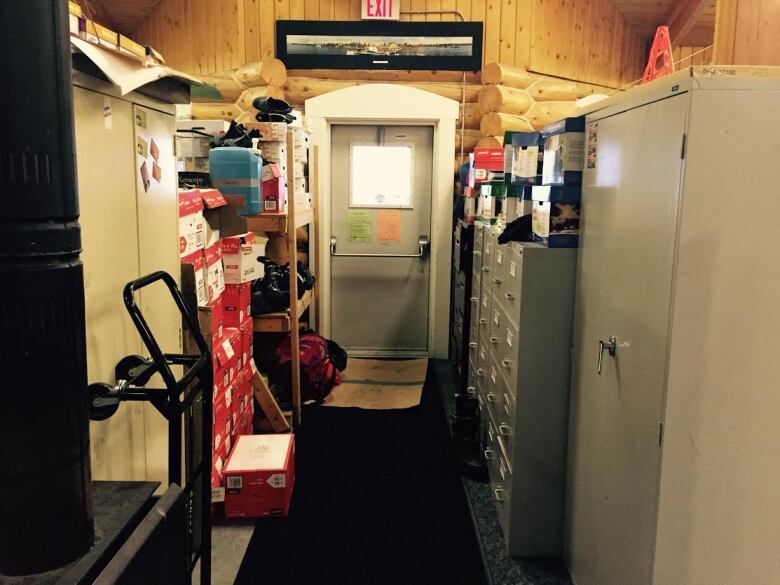Facing noisy, makeshift classrooms, students need better support, says N.W.T. mom
Minister says govt doesnt financially support students to study in larger centres

A Colville Lake mom says the Northwest Territories government should be helping students from small communities who want to go to school in larger centres to get a better education.
"There should be something in place for these students who are not getting the best education in their home communities," said Sheena Snow. "There's no help out there for them. So they end up just staying in the communities and dropping out of school."
Snow has one daughter who is in her second year of high school in Norman Wells and another who has just begun. In the past, she said, the community land corporation has helped with housing costs associated with going to school in Norman Wells, but the corporation recently said that's going to end.
Although parents can send their kids to school outside their communities, the N.W.T.'s education minister says the government does not financially support it.
"The reason we don't do that is it's kind of crossing a really thin line about residential school syndrome, which was really devastating to people in the Northwest Territories," said Caroline Cochrane.
"People are allowed to go to whatever school they want, but we are trying to bring the education system into small communities."
Cochrane said she recognizes students in small communities don't have the same education opportunities as those in larger communities, but the main difference is in the availability of optional courses.
"They all have trained teachers. They all have curriculums. The difference is they all don't have the electives that bigger schools offer," she said.
A 'horrible' learning environment
Snow said the main difference is noise.
With a population of about 160 people, according to the N.W.T. Bureau of Statistics, Colville Lake is among the smaller communities in the territory.
The school, where students from junior kindergarten to Grade 12 are taught, is one large, open space divided into rooms using partitions and bookshelves.

Snow said it is a "horrible" learning environment for high school students.
"If the other classroom is going to be singing a song, they're going to hear it. If they're talking loudly about something they're excited about, the high school students are going to hear it," she said.
"There's just no quiet time for reading or doing your work or trying to concentrate on your math it's just constant noise."
Disparity in test scores
The difference in education between small and large communities has been evident in Alberta achievement test results.
In the 2016-2017 school year, only eight per cent of students enrolled in Grade 9 in small communities were achieving acceptable standards in math. In regional centres, 41.2 per cent were at an acceptable level.
For English language arts, 17.7 per cent of Grade 9 students in small communities were at an acceptable level; in regional centres 53 per cent were.
The education minister said plans are in the works to build a new school in Colville Lake, but it won't be ready for at least three years.
In the meantime, the N.W.T. government is working on bringing distance learning to small communities.
That's where students get instruction via video link from teachers outside the community.
"It tends to be the higher level courses we struggled with, so those are the courses we're bringing in with distance learning," said Cochrane.
Cochrane said the education department brought distance learning to seven communities last year and will have another four online this year. It will be brought to other small communities that want it over the next two years, she said.
The Sahtu Divisional Education Council is now in the process of "defining the communities" in the Sahtu that will receive distance learning, the minister said.












_(720p).jpg)


 OFFICIAL HD MUSIC VIDEO.jpg)
.jpg)



























































































